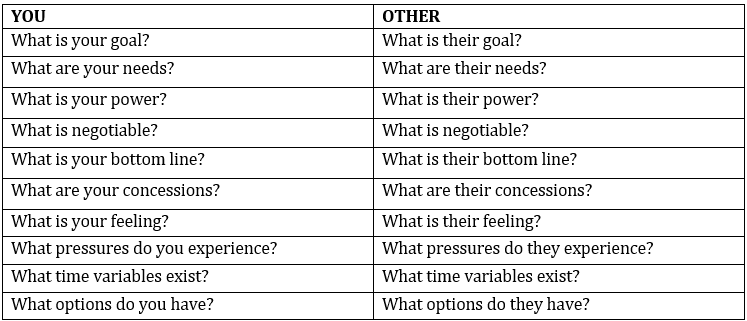ATD Blog
You Negotiate What?
Tue Aug 15 2017

“Am I comfortable negotiating in this situation?” “Will negotiating meet my need?” “Is the expenditure of energy and time on my part worth the benefits that I can receive?”
Almost everything is negotiable. Therefore, you must develop a negotiator’s mindset. Look around you and see all you can negotiate, because negotiation is how you use information and power to create an outcome.
You can control one or more of three crucial negotiation variables:
Power
Title—your ability to use your position for official standing
Reward—your ability to reward others
Coercion—your ability to punish
Charisma—your ability to use charm and appeal to generate respect
Expertise—your ability to use your subject matter expertise
Time
Deadline—your ability to manage your time
Strength—your ability to sustain tension
Patience—your ability to be calm
Information
Knowledge—your ability to know when, where, and how to share information
You need, first and foremost, to prepare for negotiation by asking the following questions of your position and the position of the other party:

Which of the following best describes you?
A. You feel competitive, blaming and intimidating others.
B. You feel powerless and guarded.
C. You gloss over conflict.
D. You search for common ground, concerned about satisfying both.
Positional negotiation is about locking yourself into one position. When this happens, egos flare, and less attention is given to underlying concerns and harms the relationship.
Principled negotiation is about separating the person from the problem; focusing on interest, not positions; and generating options for mutual gain to benefit the ongoing relationship.
According to some experts, four things can hinder inventing options: premature judgment, searching for a single answer, assumptions, and thinking that problem solving is someone else’s responsibility.
Your negotiation style can be adversarial (A), play it safe (B), harmonizing (C), or participative (D).
Here are three steps to effective negotiations:
Commit to personal integrity and positive outcome.
Exchange information and clarify issues by focusing on interests, not positions. Recognize and uncover (if necessary) any emotional issues to find options that can be agreed upon.
Commit to a formal approval process for the agreed-upon option and follow up to assure the option is working as planned.
In next month’s post, we’ll explore more about the four negotiation styles and explain how you can use these three steps to negotiate effectively.
You've Reached ATD Member-only Content
Become an ATD member to continue
Already a member?Sign In
